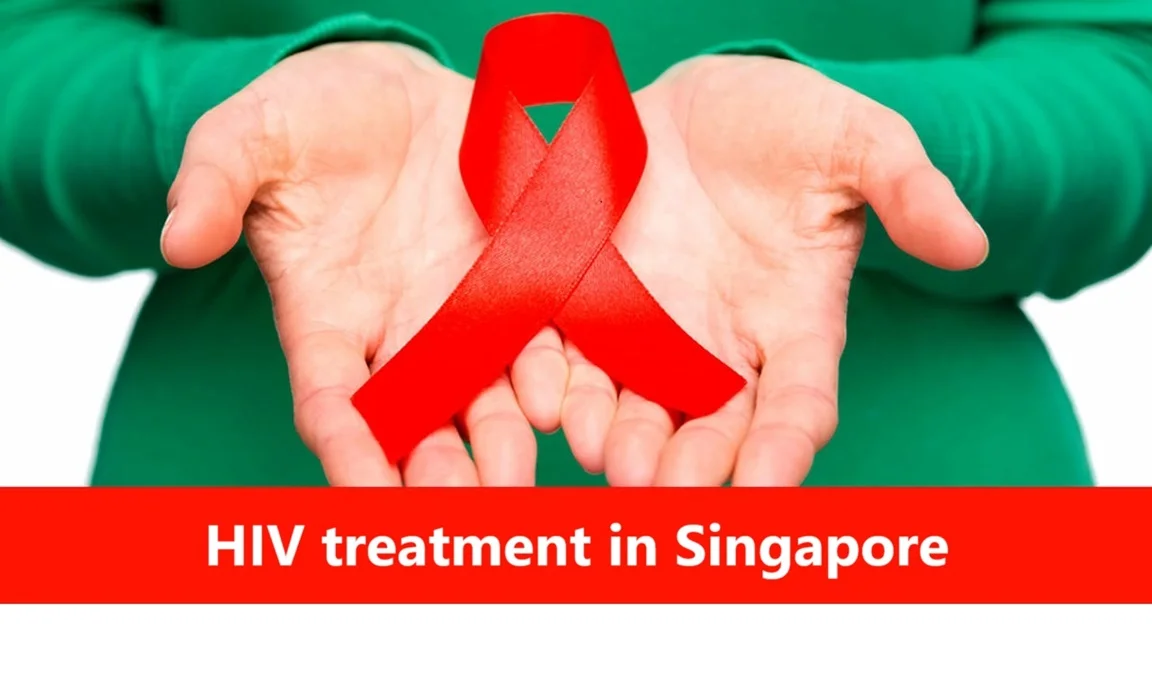
Whether you are contemplating your first test or looking for more information, you need to learn more to equip yourself with the knowledge you need to approach HIV treatment in Singapore confidently and responsibly.
HIV treatment in Singapore is a vital component of maintaining health and wellness, yet many people still feel apprehensive about it. With advancements in treatment and prevention, knowing your HIV status is more important than ever, not only for your own health but also for the well-being of your partners and community. Testing can seem intimidating, often shrouded in fear and misconceptions, but it is ultimately an empowering choice. This article will break down the HIV testing process and highlight the importance of regular testing and preventative measures as proactive steps in healthcare.
HIV stands for Human Immunodeficiency Virus. It strikes the immune system, particularly the CD4 cells, which are critical for fight off infections in the body. When someone is infected with HIV, the virus gradually weakens the immune system. If no treatment is applied, HIV can lead to AIDS (Acquired Immunodeficiency Syndrome), a stage where the immune system is severely damaged, making the body vulnerable to life-threatening infections and diseases.
It is important to distinguish between HIV and AIDS. While HIV is the virus that causes the infection, AIDS is a condition that can develop over time in people with HIV if they do not receive proper treatment. With current medical advancements, many people with HIV can live long, healthy lives and never develop AIDS, thanks to effective treatments available today.
Transmission of HIV
Understanding how HIV is transmitted is essential for prevention. HIV spreads through certain body fluids, including blood, semen, vaginal fluids, rectal fluids, and breast milk. The most common ways that HIV is transmitted include not using protection during sexual contact with an infected person, sharing needles or syringes, and, less commonly, during childbirth or breastfeeding where the HIV is passed from mother to child.
There are several myths surrounding HIV transmission that can lead to misunderstandings and stigma. For example, HIV cannot be spread through casual contact like hugging, shaking hands, or sharing dishes. It is also not transmitted through sweat or saliva in everyday situations. These misconceptions can contribute to fear and stigma, which is why education about HIV transmission is a must.
Symptoms of HIV infection
When a person first contracts HIV, they may experience early symptoms, often referred to as acute HIV syndrome. These symptoms can appear within two to four weeks after exposure and might include fever, fatigue, swollen lymph nodes, and flu-like symptoms. Because these symptoms can mimic other illnesses, many people may not realize they have HIV at this stage.
After this initial phase, some individuals may enter an asymptomatic stage where they do not experience any symptoms for several years. During this time, the virus is still active and can continue to damage the immune system. Regular testing is essential, even if someone feels healthy, because they may still transmit the virus to others.
If HIV is not treated, it can progress to AIDS. At this stage, the body becomes much more susceptible to opportunistic infections and certain cancers, which can be serious or even fatal. Symptoms of AIDS may include rapid weight loss, persistent fever, extreme fatigue, and recurrent infections.
Why testing matters for HIV treatment in Singapore
Regular HIV testing in Singapore is vital for several reasons. First, knowing your HIV status helps you understand your health better. If you are positive, early diagnosis allows you to start treatment, which can dramatically improve your quality of life and prevent the transmission of the virus to others.
Testing also plays a critical role in public health. The more people who know their status, the more effective prevention efforts can be. Regular testing helps reduce the spread of HIV within communities. Public health campaigns often emphasize the importance of testing as a way to protect both individual and community health.
Moreover, getting tested can relieve anxiety about unknown status. Many people worry about potential exposure to HIV but are unsure of their risk. A simple test can provide clarity and peace of mind, enabling individuals to take informed steps moving forward.
Dealing with HIV test results
A negative result means that no HIV antibodies or antigens were detected. However, it is essential to consider the window period— the time it takes for the body to produce detectable levels of antibodies after exposure. If testing occurs too soon after exposure, a negative result may not accurately reflect one’s status.
A positive result indicates that HIV antibodies or antigens were found in the sample. However, a positive result does not automatically mean that a person has HIV. Confirmatory tests are needed to verify the result. This is important to ensure accurate diagnosis and to provide appropriate care.
Being proactive about understanding test results can significantly impact health outcomes. If the result is positive, it is essential to seek medical guidance promptly. Healthcare providers can offer the necessary support, treatment options, and resources for living well with HIV.
HIV prevention treatment strategies
Preventing the spread of HIV is essential for public health. There are several effective strategies to reduce the risk of transmission. One key method is pre-exposure prophylaxis (PrEP), a daily medication that can significantly lower the risk of contracting HIV for those at high risk.
Another option is using Post-Exposure Prophylaxis (PEP). PEP is a medical treatment designed to prevent HIV infection after potential exposure to the virus. To start this treatment, antiretroviral medications are prescribed to be taken within 72 hours of possible exposure, such as through needle sharing or unprotected sex.
PEP is most effective when started as soon as possible and is typically taken for 28 days. While it significantly reduces the risk of HIV infection, it is not an alternative for regular preventive measures, such as using condoms or pre-exposure prophylaxis (PrEP). Consistently and properly using condoms during sexual activity is another effective way to reduce the risk of HIV transmission. Condom use not only protects against HIV but also helps prevent other sexually transmitted infections (STIs).
Living with HIV
Living with HIV involves managing health and lifestyle choices. Regular medical care is essential, including routine check-ups to monitor the virus and immune function. Staying on ART can help maintain a low viral load, reducing the risk of transmission and supporting overall health.
In addition to medical care, adopting a healthy lifestyle can make a significant difference. Eating a balanced diet, exercising regularly, and avoiding smoking and excessive alcohol can help keep the immune system strong. Mental health is equally important; finding ways to cope with the emotional aspects of living with HIV can contribute to a better quality of life.
Lastly, building a support network is crucial for anyone living with HIV. This can include friends, family, healthcare providers, and support groups. Sharing experiences and seeking support can help individuals feel less isolated and more empowered.
Conclusion
Regular testing, early diagnosis, and effective treatment allow many people with HIV to live full and healthy lives. If you suspect you may have been exposed to HIV or are experiencing symptoms, do not hesitate to get tested. Knowing your status is the first step toward taking control of your health and protecting yourself and others. With the right information and support, you can take manage your condition and its symptoms effectively.
—
Dr Ben Medical @ Tanjong Pagar | ED Treatment | STD Treatment Singapore
SBF Center Medical Suites
160 Robinson Road
#03-09 SBF Center Medical Suites
Singapore 068914
+65 888 12344
+65 888 12344 | +65 888 12344






